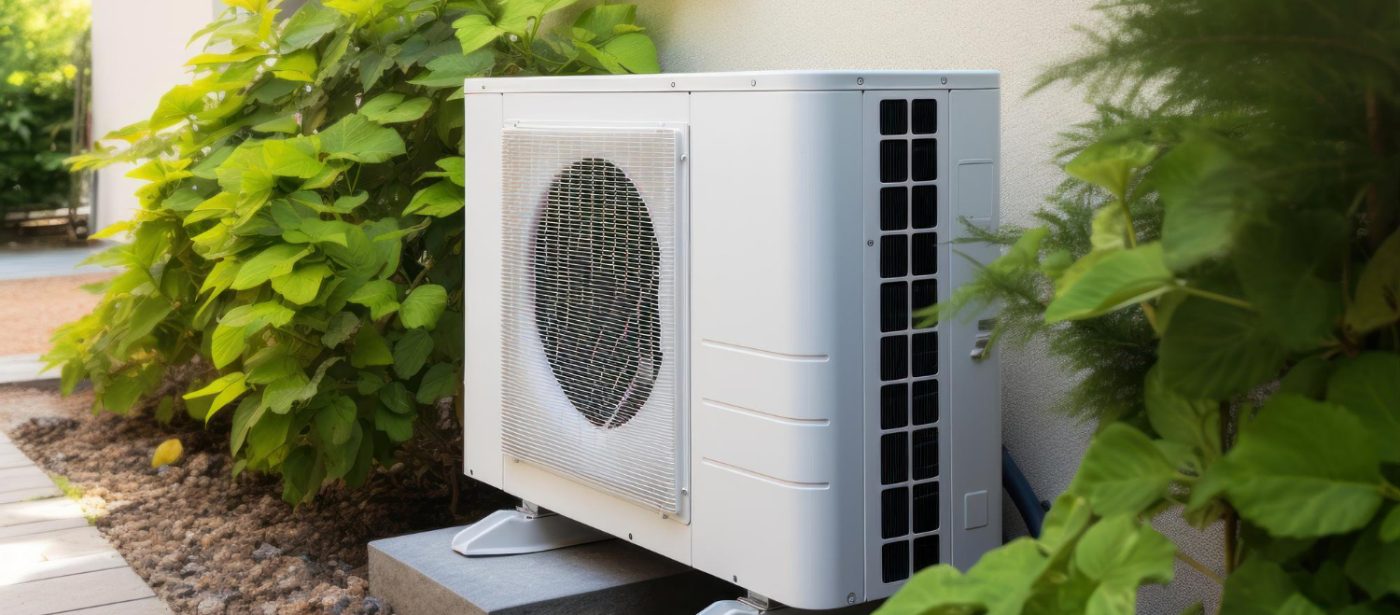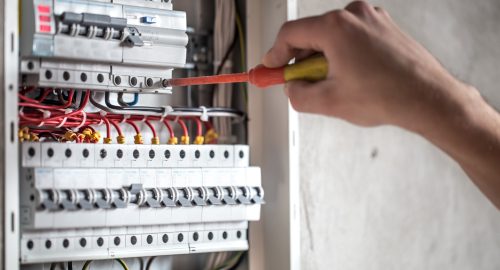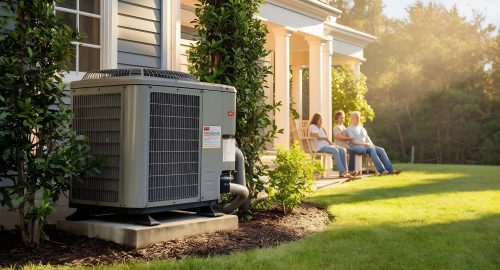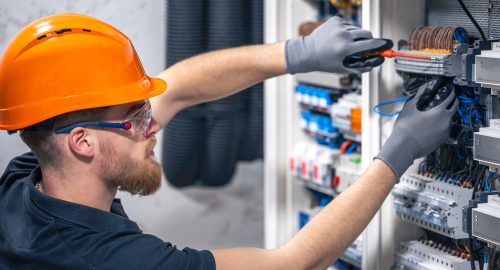Heat pump error codes can be a common challenge for homeowners in St. Louis Park, especially during the transitional seasons when systems work harder to maintain comfortable indoor temperatures. These codes act as the system’s way of communicating that something isn’t functioning as it should. Understanding what these codes mean can save you time, help you assess the urgency of the issue, and guide you in seeking appropriate solutions.
A home’s heat pump plays a critical role in maintaining comfort throughout the year by heating in the winter and cooling in the summer. Hence, deciphering any error messages promptly is crucial. Not only does this ensure the continued efficiency of the system, but it also helps in avoiding bigger, more costly problems down the line. By being informed about the common error codes, you can better manage minor issues and understand when it’s necessary to seek professional assistance.
Common Heat Pump Error Codes
Heat pumps communicate problems through specific error codes, which can vary between different models and manufacturers. However, several codes often appear frequently across systems, indicating similar issues. Recognizing these common error codes can help you identify the problem quickly and decide on your next steps.
1. E1 Error Code: This usually signals an issue with the indoor unit’s temperature sensor. The sensor might be faulty or disconnected, leading the unit to inaccurately read room temperature, affecting its ability to regulate heating and cooling effectively.
2. E2 Error Code: Often related to the outdoor unit or components like the fan motor. This could mean there is a malfunction or blockage preventing the fan from functioning correctly, which might affect air circulation.
3. E3 Error Code: Typically indicates a refrigerant issue. A leak or blockage could trigger this code, affecting the heat pump’s efficiency and cooling performance.
Understanding these codes in detail helps you recognize whether the issue is a minor inconvenience or a signal of a significant malfunction. While some problems are easily fixed with basic troubleshooting, others may require you to contact professionals to ensure safety and system integrity. Always prioritize safety when dealing with electrical equipment, and consult with our technicians if there is any uncertainty regarding error codes.
Troubleshooting Basic Error Codes
When dealing with heat pump error codes, understanding how to troubleshoot can be beneficial. While some issues may require professional help, there are basic steps you can take when faced with common error codes. These actions can help you identify the problem without causing additional damage to your system.
– E1 Error Code: Start by checking the indoor temperature sensor. Ensure it is connected properly and not blocked by dirt or debris. Sometimes, a simple cleaning or adjustment can resolve issues with inaccurate temperature readings.
– E2 Error Code: Inspect the outdoor unit for obstructions or visible damage. Make sure the fan is not blocked by leaves or other debris. You can try to clear any visible blockages, but if the fan motor appears damaged, it’s time for our technicians to assess the situation.
– E3 Error Code: Look for signs of refrigerant leaks around the unit. Refrigerant problems are not typically safe to address on your own. If you suspect a leak, it’s best to shut down the system and have one of our professionals evaluate and recharge the refrigerant safely.
Remember, safety should always come first. If you’re unsure about an error or the troubleshooting steps, contact our team to avoid any potential hazards. It’s better to be cautious and ensure proper handling of your equipment.
When to Call a Professional
There are times when troubleshooting doesn’t resolve the issue, or the error codes indicate a more serious problem. Knowing when to call in the experts can save you from extensive damage and high repair costs.
Indicators that it’s time to call a professional include:
– Error codes persist even after completing basic troubleshooting steps.
– A strange noise or unusual odors coming from the heat pump, which might indicate internal damage.
– Repeated error codes that recur even after temporary fixes might mean there’s an underlying issue that needs professional attention.
Professional diagnosis and repair ensure that the root cause of the problem is identified and addressed properly. Our technicians have the training and experience necessary to work safely with complex heat pump systems.
Preventative Maintenance Tips
Routine maintenance is key to preventing error codes and ensuring efficient operation of your heat pump. Here are some essential maintenance tips:
– Regularly clean or replace air filters to maintain good airflow and efficiency.
– Keep the outdoor unit free of debris to prevent blockages.
– Schedule regular professional maintenance checks to catch small issues before they become larger problems.
– Adjust your heat pump settings based on the season to ensure optimal performance.
During the changing weather in St. Louis Park, it’s beneficial to have a professional evaluate your system. These checks can help identify wear and tear or potential issues before they affect performance. By staying on top of maintenance, you protect your investment and ensure year-round comfort in your home.
Ensuring Reliable Heat Pump Performance
A well-maintained heat pump can make all the difference in household comfort. By understanding error codes, you can address minor issues swiftly and know when to seek professional help for more significant problems. With regular maintenance and attention, your heat pump will run efficiently, minimizing disruptions throughout the year.
Proactively managing your heat pump not only extends its life but also ensures that your home stays comfortable regardless of the weather outside. By contacting our team at Stafford Home Service Inc, you can receive expert advice and comprehensive services tailored to your needs, helping to keep your heat pump running smoothly all year long.
Maintaining a dependable heat pump in St. Louis Park starts with understanding the signs that your system may need extra care. If error codes continue to cause concern, taking steps to learn how to keep your equipment in check can help avoid further complications and ensure smoother performance. Stafford Home Service Inc understands how vital it is to have a reliable system, and our experts are ready to provide the professional support you need. For a quick estimate or to book a service visit, please contact us today.








